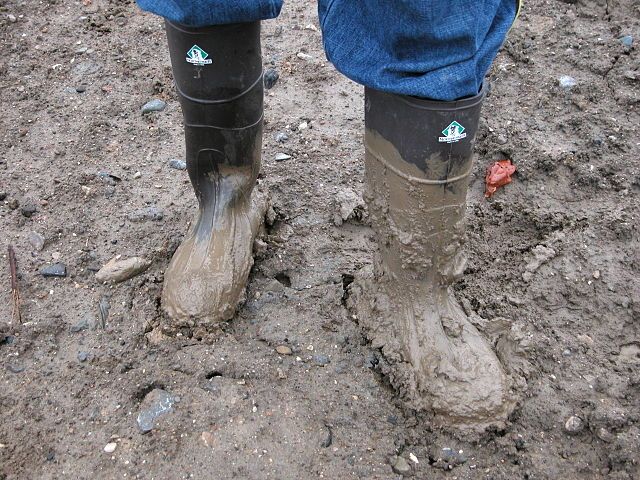Heavy rain is causing big problems at this year’s Langeland Festival. Nearly nine millimetres of rain fell on Tuesday, and festival organisers locked down the car parks. Guests were not able to get out, even if they wanted to.
“We tried to leave and get our children some warm and some dry clothes, but we are stranded here instead,” Erik Rold, who is at the festival with his two children, told Ekstra Bladet.
The car park has been closed down for hours and Rold said there is no information on when it might be reopened. Rold paid 300 kroner to park in the designated area for the entirety of the festival.
“We are like hostages here,” he said.
A sticky situation
Festival organisers have tried to combat the rain by putting tiles, road signs and pebbles on the parking lots. Those efforts have been to little or no avail.
“The parking lots are located on some surrounding fields, and it has rained a lot today,” said Langeland press spokesperson Jakob Hansen. “It will create one big mud pit if we open for entry and exit.”
Hansen said that he understands that guests are frustrated but that there is little the festival can do about the nearly nine millimetres of rain that have fallen at Langeland since Tuesday morning.
READ MORE: Torrential rain showers forecast for Roskilde 2017
DMI reports that the weather for the rest of the week will be a mixed bag, but that some sunshine is on the way, although summer-like weather is probably still not in the offing.
The weather service also said that there has not been a daytime high temperature in Denmark above 25 C for the entire month of July, breaking a record that has stood since the 1970s.















